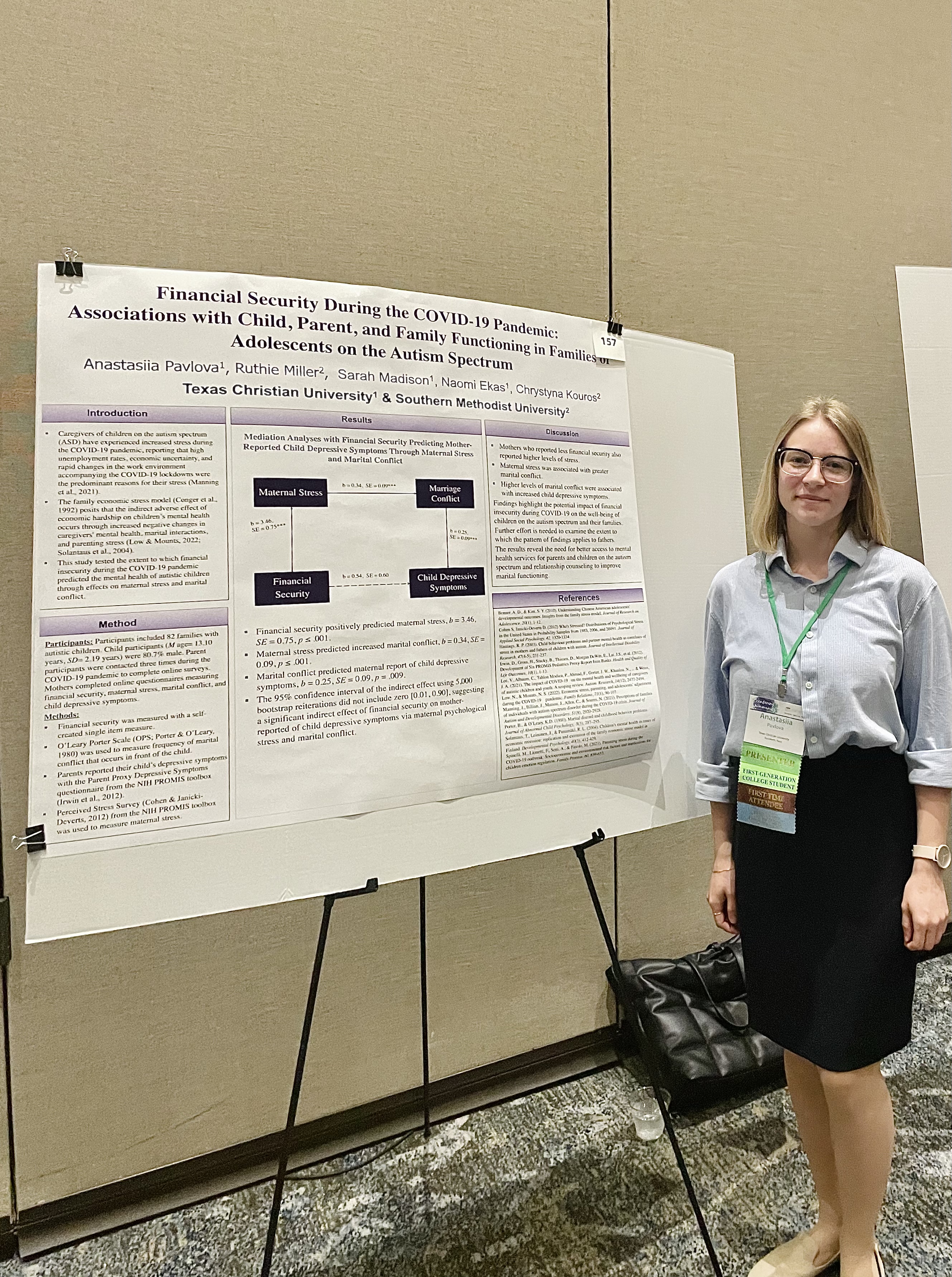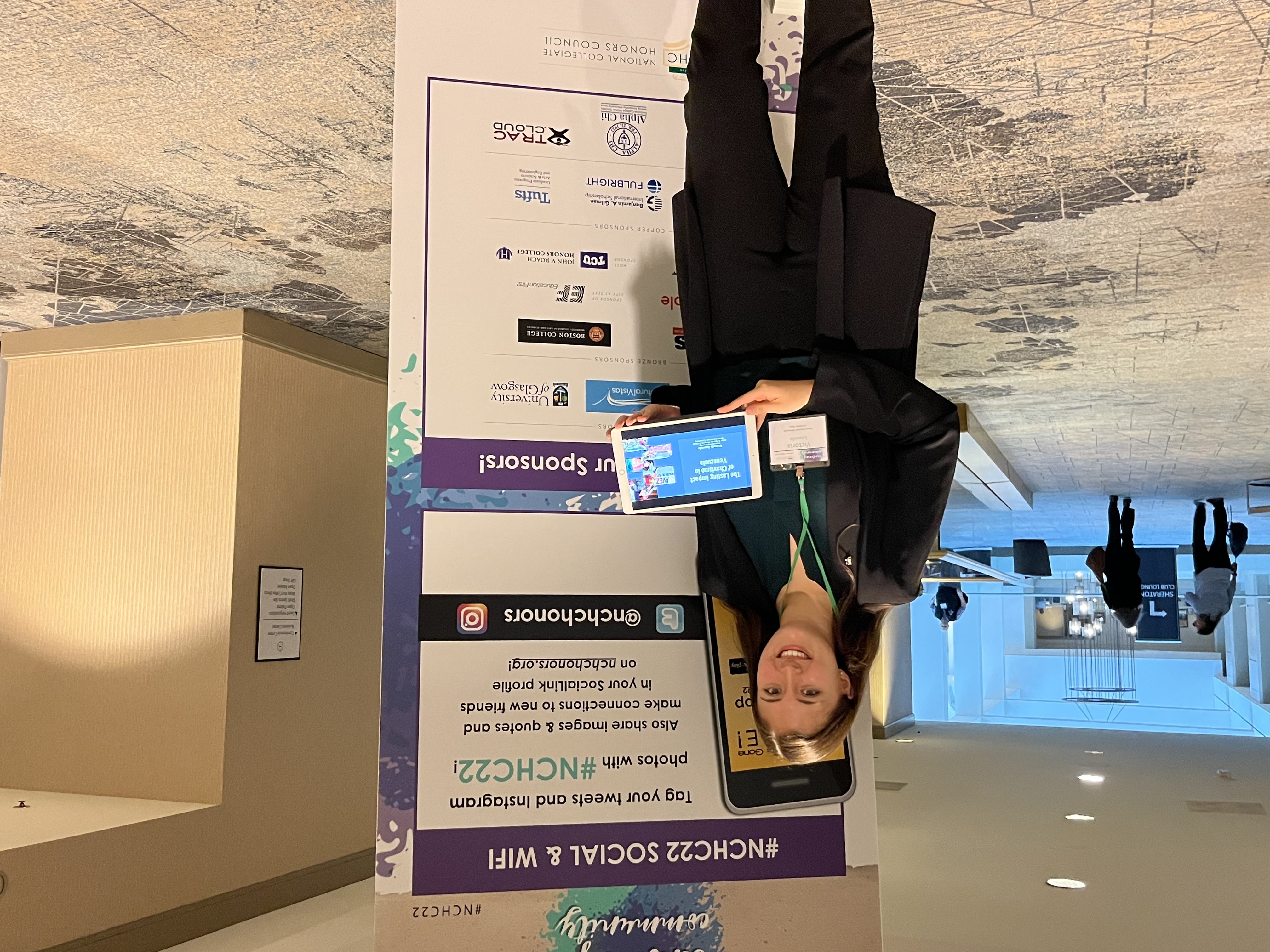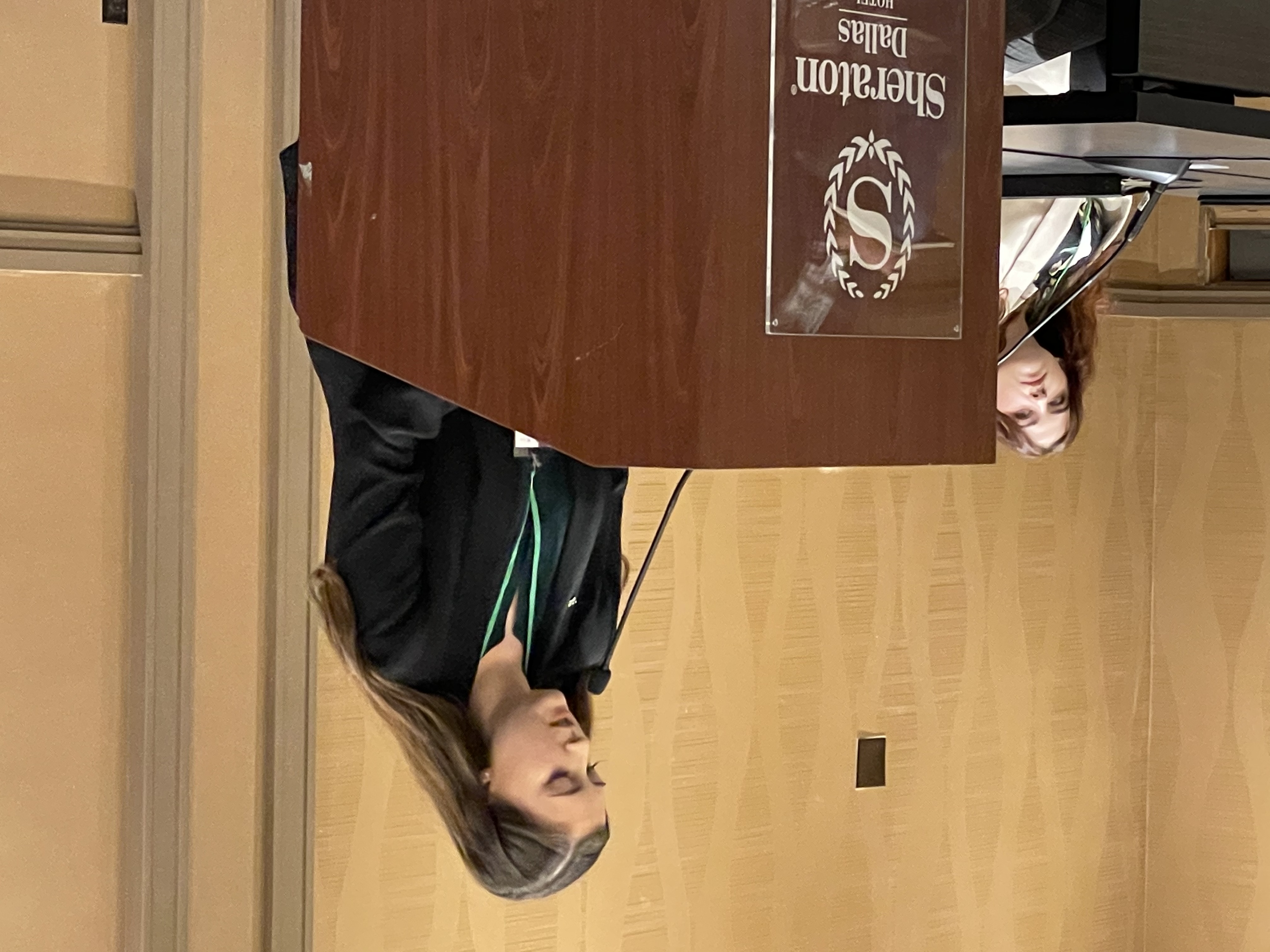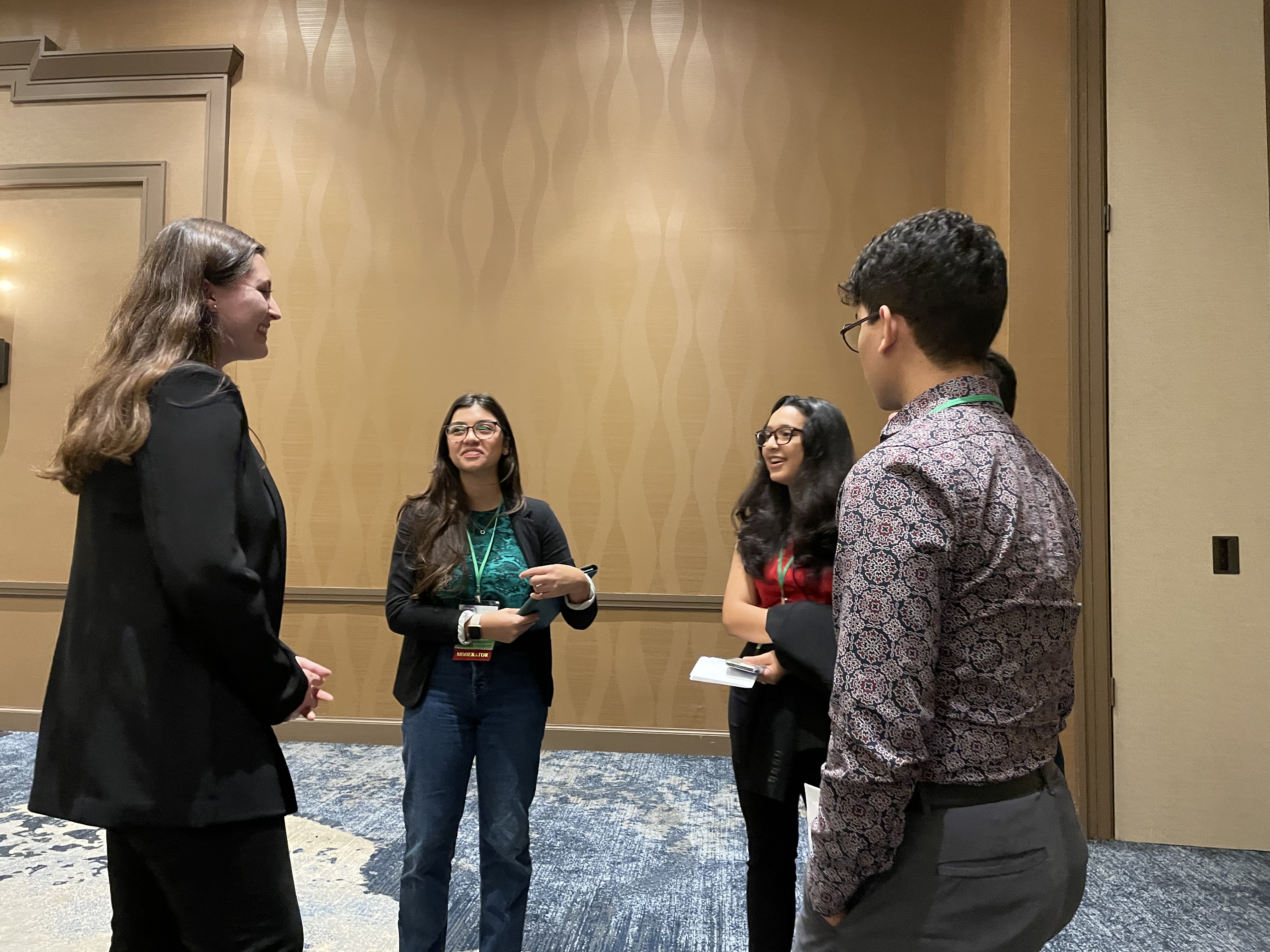Members of the Honors College including, Dean Ron Pitcock, staff, faculty and students, attended the National Collegiate Honors Council (NCHC) National Conference in Dallas in Nov. 2022. At the conference, three students presented their research and had the opportunity to build community with Honors College students, faculty and staff of other universities.
Poster Presentations

Ana Pavlova ’23 and Alex Caron ’22 presented posters in the NCHC poster competition with 200 other Honors students from a variety of disciplines. Judges came around to hear each student’s two-minute pitch about their research.
Pavlova is a child development and psychology major. She presented how COVID-19 affects depressive symptoms in autistic children. Specifically, whether a mother’s stress will mediate aversive symptoms in children. Pavlova used the family economic stress model, which shows how poverty and economic pressure affect interparental relationships and child outcomes. "When parents are stressed, it reduces the quality of parenting and children have negative effects due to that,” said Pavlova. The study found that maternal stress was a mediator between economic stress in the family and autistic children’s depressive symptoms. These results are similar in neurotypical children.
Pavlova conducted this research because “we know a lot about neurotypical children but not neuroatypical, or children with some developmental disorders.” She added, “I am interested in [this research] because it is important to understand what factors, such as family environment, affect autistic children’s behavior and development to improve their everyday life.”
Caron is a biology major with chemistry and psychology minors. He presented research about using zinc oxide as a new form of antibiotic. As more and more antibiotics are prescribed, bacteria are adapting to resist the antibiotics — a growing concern in the health field. Enter zinc oxide, which has anti-bacterial mechanisms. In his lab, led by Shauna McGillivray, Ph.D., Caron and his team investigate the different mechanisms behind zinc oxide nanoparticles.
“I have done my Upper-Division Departmental Honors through the lab, and Dr. McGillivray is my faculty advisor in terms of my project. She has helped me out a lot through the process of writing, research and giving me direction through it,” shared Caron. “I think my favorite part of doing research at this level is building a relationship with her. My relationship with her has been really valuable.”
Student Interdisciplinary Research Panels


Victoria Saucedo ’22 is a political science major with a philosophy minor who also presented at the conference. Last spring, Saucedo went through a special selection process to present at the NCHC conference. Her presentation was a part of the Student Interdisciplinary Research Panels (SIRP) which gives students engaged in high-level research an opportunity to present papers in a discussion format, rather than read their work.
Saucedo’s research focuses on politics in Venezuela. Specifically, she looked at Chavismo – a populist phenomenon associated with the prior president, Hugo Chavez, which brought revolutionary socialism. Chavismo policies created democratic backsliding like record-high poverty rates and food shortages. Saucedo’s research adds that the dependence and mismanagement of oil reserves in Venezuela also contribute to democratic backsliding.
“I became interested in Latin American politics because of my family's heritage. My dad’s side of the family is from Mexico, and I grew up traveling down there a lot and just really being immersed in the culture,” Saucedo shared. “That prompted me to take a class in spring 2021 on Latin American politics. Through that class, we were able to create our own research project which is what I presented on.”
Centering Community

Beyond their presentations, the students had the opportunity to attend workshops and meet Honors faculty and students from universities across the world.
“I went to one workshop where I heard from a professor from Alabama who teaches an Honors course on how to make documentary movies,” stated Pavlova. “There were also workshops about how to get scholarships for grad school and graduate research.”
“It was interesting to meet different students from across the country and see what their Honors experience is like,” said Saucedo. “There was also a graduate school fair. I’m pursuing law school, so I was able to learn what other law schools are out there and get more information.”